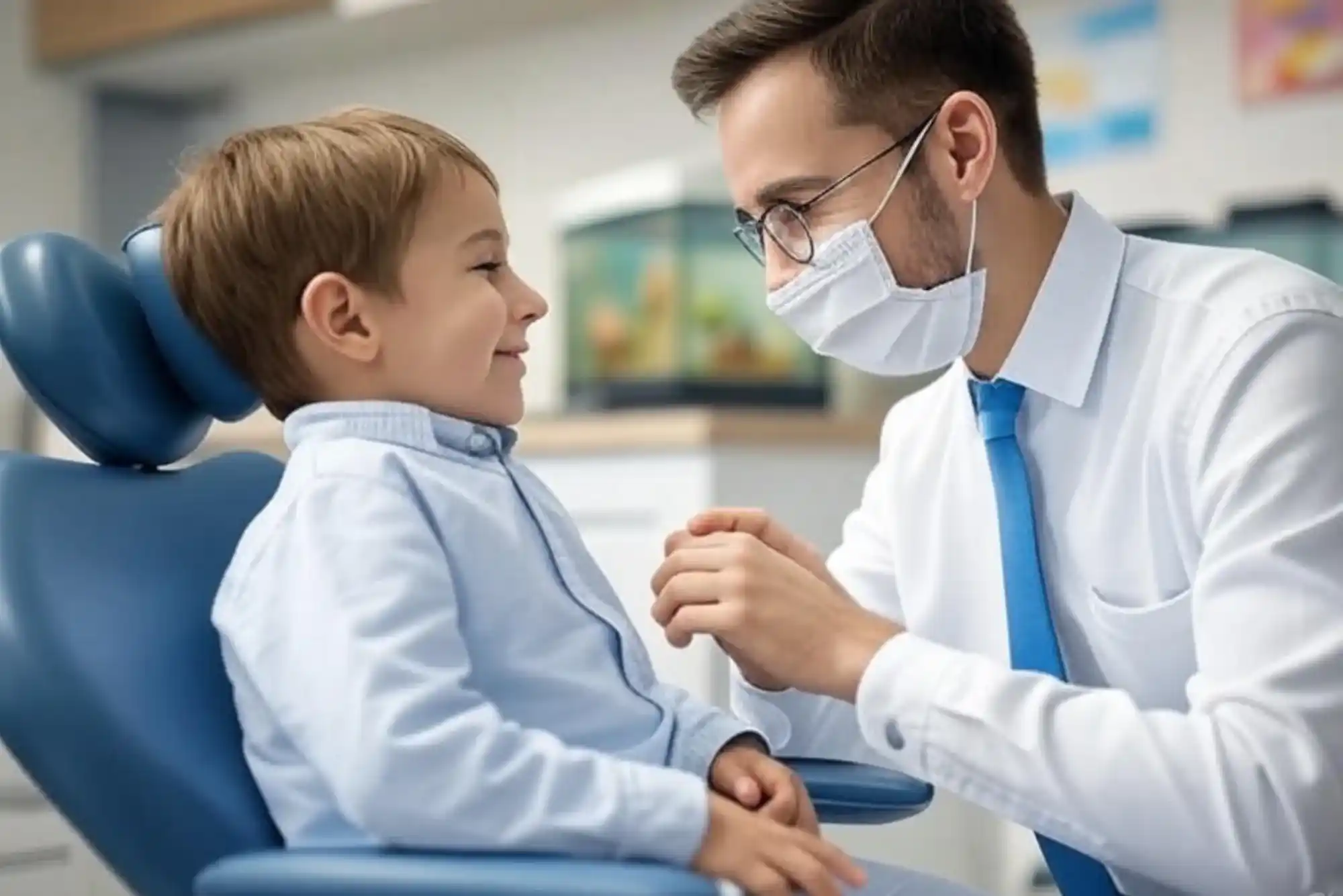Taking your child to the dentist for the first time—or even the fifth—can feel like a big milestone. As parents, we want the experience to be smooth, stress-free, and even positive enough that our kids build healthy dental habits for life. Yet, children often associate the dentist with fear of the unknown. The good news is that with the right preparation, you can help your little one feel calm, confident, and even curious about the visit.
When you search “pediatric dentist near me,” you’re not just looking for someone to clean teeth—you’re choosing a professional who knows how to connect with children and guide them gently through care. Pairing that with your own preparation at home can make all the difference in shaping your child’s outlook on oral health.
Start with the Right Mindset at Home
The way parents talk about dentists greatly influences how children perceive dental care. If you describe the dentist’s office as a scary place, your child is likely to mirror that fear. Instead, use positive and simple language. Tell them that the dentist helps keep their teeth strong and shiny, just like superheroes protect people from harm.
Avoid sharing your own anxieties. Children are surprisingly good at picking up on emotions. If you feel nervous, try to frame the visit as an exciting adventure. This small shift can ease your child’s mind before you even leave the house.
Choosing a Family Dentist in Dubai
If you live in the UAE, selecting the right family dentist Dubai is crucial. A family-friendly practice makes it easier for kids to feel comfortable, especially if they see you going for regular check-ups in the same place. Children tend to trust environments where they observe familiarity and consistency.
Family dentists in Dubai often offer both adult and pediatric care under one roof, which allows your child to feel that dental visits are a normal part of family life. This shared environment also allows dentists to understand family dental history, which can be valuable when guiding your child’s care plan.
Role-Play the Visit at Home
One effective way to reduce anxiety is to role-play a dentist appointment. Pretend to be the dentist and have your child open their mouth while you count their teeth with a toothbrush. Then switch roles, letting them be the dentist. This simple game not only makes the concept less intimidating but also gives your child a sense of control and familiarity.
Children who know what to expect often feel more confident walking into a new environment. By practicing at home, you’re removing the “unknown factor” that often causes fear.
Talk About the Benefits of Healthy Teeth
Children are more motivated when they understand the “why” behind an activity. Explain that brushing, flossing, and visiting the dentist helps them eat their favorite foods without pain and keeps their smile bright. You can even connect dental health with stories they enjoy. For example, explain that superheroes need strong teeth to stay powerful, or that princesses and princes smile with confidence because they care for their teeth.
The more positive connections your child makes with dental care, the less intimidating the experience becomes.
Schedule the Appointment Wisely
Timing matters more than many parents realize. Try to book the visit at a time when your child is typically well-rested and in a good mood—often in the morning or after a nap. Avoid scheduling right before meals or during busy school hours, as hunger or tiredness can increase irritability.
Pediatric dentists understand that children may not cooperate as adults do, so a well-timed appointment can make the session shorter, smoother, and more productive.
Bring Comfort Items
Sometimes, a familiar item can provide tremendous comfort. Whether it’s a favorite stuffed toy, blanket, or even a small book, having something from home can help children feel secure in a new environment. Dentists are usually supportive of this and may even engage with the child using their toy to make the experience playful.
Choosing the Right Pediatric Dentist Near You
When searching for a pediatric dentist near me, look beyond proximity. Consider whether the clinic’s environment feels warm and child-friendly. Many pediatric dental offices are designed with bright colors, playful decorations, and kid-sized chairs to make young patients feel at ease.
Equally important is the dentist’s communication style. A skilled pediatric dentist will explain procedures in kid-friendly terms, sometimes calling tools by fun names, like “tooth tickler” for a polisher. This type of approach not only reduces fear but also builds trust between your child and their dentist.
Set Realistic Expectations
Children may not always behave perfectly during their first dental visit, and that’s completely normal. Prepare yourself for the possibility of tears, restlessness, or hesitation. The key is to remain calm and supportive, reassuring your child rather than showing frustration.
Over time, as dental visits become routine, your child will adapt. Many parents find that after two or three visits, their children walk into the office with little hesitation. Consistency is the best way to normalize the experience.
Build a Dental Routine at Home
Preparation isn’t just about the day of the visit. Regular brushing and flossing at home build familiarity with oral care, making professional cleanings less intimidating. Encourage your child to brush twice a day and let them choose their own toothbrush and toothpaste flavor. Giving them a sense of choice increases ownership and excitement about dental care.
You can also use storybooks and short videos designed for children that explain the importance of visiting the dentist. These resources often present the experience in a fun, relatable way that makes kids curious rather than fearful.
The Role of Parents During the Visit
Your presence during the visit can be calming, but it’s also important to let the dentist take the lead. Pediatric dentists are trained to manage young patients, often using distraction techniques, humor, or gentle explanations. Step in when your child needs reassurance, but allow the dentist to guide the flow. This balance helps children build independence while still feeling supported.
Turning the Visit Into a Rewarding Experience
After the appointment, consider rewarding your child with praise, a small toy, or a fun activity. Reinforcing positive behavior encourages them to view dental visits as something worth celebrating. Over time, they’ll associate the dentist with positive outcomes rather than fear.
Why Early Preparation Matters
Dental habits formed in childhood often last a lifetime. Preparing your kids for dental visits ensures that they don’t carry unnecessary fears into adulthood. Regular check-ups also help prevent cavities, gum issues, and orthodontic concerns, saving you from more complicated treatments in the future.
A child who grows up with a positive view of dental care is more likely to prioritize oral health as an adult. This is one of the greatest gifts you can give your child—a healthy smile and the confidence that comes with it.
Final Thoughts
Preparing children for a pediatric dentist visit doesn’t have to be stressful. By framing the experience positively, choosing the right family dentist Dubai or a trusted pediatric dentist near me, and creating supportive routines at home, you can set your child up for success. Dental visits will become less about fear and more about building lifelong habits for strong, healthy teeth.
The goal isn’t just to get through one appointment—it’s to create a foundation of trust, comfort, and routine that will serve your child for years to come. A little preparation today can shape your child’s smile for a lifetime.




